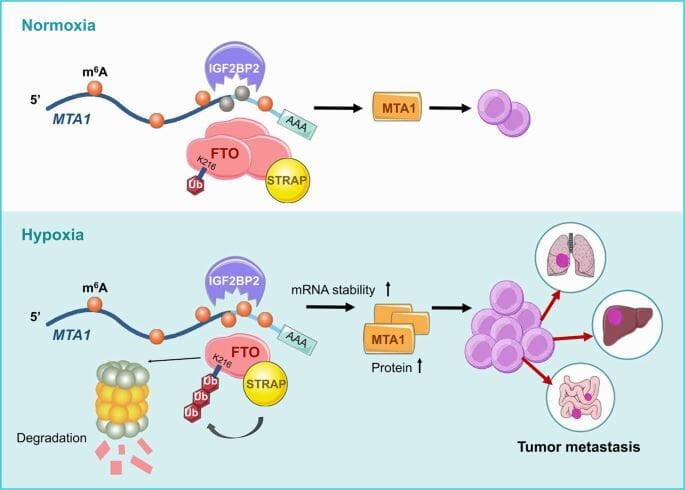The Role of FTO
The Role of FTO
Obesity is a multifactorial condition influenced by both genetic and environmental factors. The Fat Mass and Obesity-associated (FTO) gene has been identified as a significant genetic contributor to obesity. This paper explores the mechanisms by which FTO influences body weight, fat accumulation, and metabolic health. Understanding the role of FTO and its genetic variations provides insights into the genetic basis of obesity and potential personalized interventions for weight management.
Introduction

The prevalence of obesity has reached epidemic proportions worldwide, leading to increased research into its underlying causes. While lifestyle factors such as diet and physical activity are well-established contributors, genetic factors also play a crucial role. Among the genes associated with obesity, the Fat Mass and Obesity-associated (FTO) gene has garnered significant attention. This article examines how FTO influences body weight regulation and explores the implications for personalized obesity management.
The Function of FTO in Energy Homeostasis
The FTO gene encodes an enzyme that is involved in the demethylation of nucleic acids, affecting the regulation of gene expression related to energy homeostasis. FTO is highly expressed in the hypothalamus, a brain region critical for controlling hunger and energy expenditure. The gene's activity influences the expression of other genes involved in appetite regulation and energy balance.
Genetic Variations in FTO and Their Impact
Genetic polymorphisms in the FTO gene, particularly the rs9939609 single nucleotide polymorphism (SNP), have been strongly associated with increased body mass index (BMI) and obesity risk. Individuals carrying the risk allele (A) of this SNP tend to have higher levels of body fat, increased food intake, and a preference for energy-dense foods. The presence of this allele has been linked to a 20-30% increased risk of obesity.
Influence of FTO on Dietary Responses
FTO variants affect dietary behaviors and metabolic responses to different types of food. Studies have shown that individuals with the risk allele may experience altered satiety signals and increased hunger, leading to higher caloric intake and weight gain.
Appetite and Food Preferences
Individuals with the risk allele of the FTO gene often exhibit increased appetite and a preference for high-calorie, high-fat foods. This predisposition can lead to overeating and difficulty in adhering to calorie-restricted diets. Understanding these genetic influences can help tailor dietary recommendations to support weight management in affected individuals.
Energy Expenditure
The FTO gene also impacts energy expenditure. Research indicates that carriers of the risk allele may have lower basal metabolic rates, making it more challenging to burn calories efficiently. This reduced energy expenditure, combined with increased caloric intake, contributes to weight gain and obesity.
Clinical Implications and Personalized Interventions
Recognizing the influence of FTO on obesity risk underscores the importance of personalized approaches to weight management. Genetic testing for FTO variants can help identify individuals at higher risk of obesity, allowing for targeted interventions.
Dietary Interventions
For individuals with FTO risk alleles, dietary strategies should focus on enhancing satiety and reducing caloric intake. High-protein diets, which promote feelings of fullness, can be particularly effective. Additionally, incorporating fiber-rich foods and healthy fats can help manage hunger and prevent overeating.
Physical Activity
Regular physical activity is crucial for managing weight in individuals with FTO risk alleles. Exercise can help increase energy expenditure and improve metabolic health. Personalized fitness programs that combine aerobic and resistance training can maximize the benefits for weight management.
Behavioral Strategies
Behavioral interventions that address eating habits and emotional triggers for overeating can also be beneficial. Techniques such as mindful eating, portion control, and stress management can support sustainable weight loss and prevent relapse.
Conclusion
The FTO gene plays a significant role in the regulation of body weight and fat accumulation, contributing to the genetic basis of obesity. Genetic variations in FTO, particularly the rs9939609 SNP, influence appetite, food preferences, and energy expenditure. Understanding these genetic factors allows for personalized interventions that can effectively manage and mitigate obesity risk. Continued research into the FTO gene and its interactions with environmental factors will enhance our ability to develop targeted strategies for combating obesity.
References
- Frayling, T. M., Timpson, N. J., Weedon, M. N., et al. (2007). A common variant in the FTO gene is associated with body mass index and predisposes to childhood and adult obesity. Science, 316(5826), 889-894.
- Qi, Q., Kilpeläinen, T. O., Downer, M. K., et al. (2014). FTO genetic variants, dietary intake and body mass index: insights from 177,330 individuals. Human Molecular Genetics, 23(25), 6961-6972.
- Speakman, J. R., & O'Rahilly, S. (2012). Fat: an evolving issue. Disease Models & Mechanisms, 5(5), 569-573.
- Loos, R. J., & Yeo, G. S. (2014). The genetics of obesity: from discovery to biology. Nature Reviews Genetics, 15(8), 564-576.












